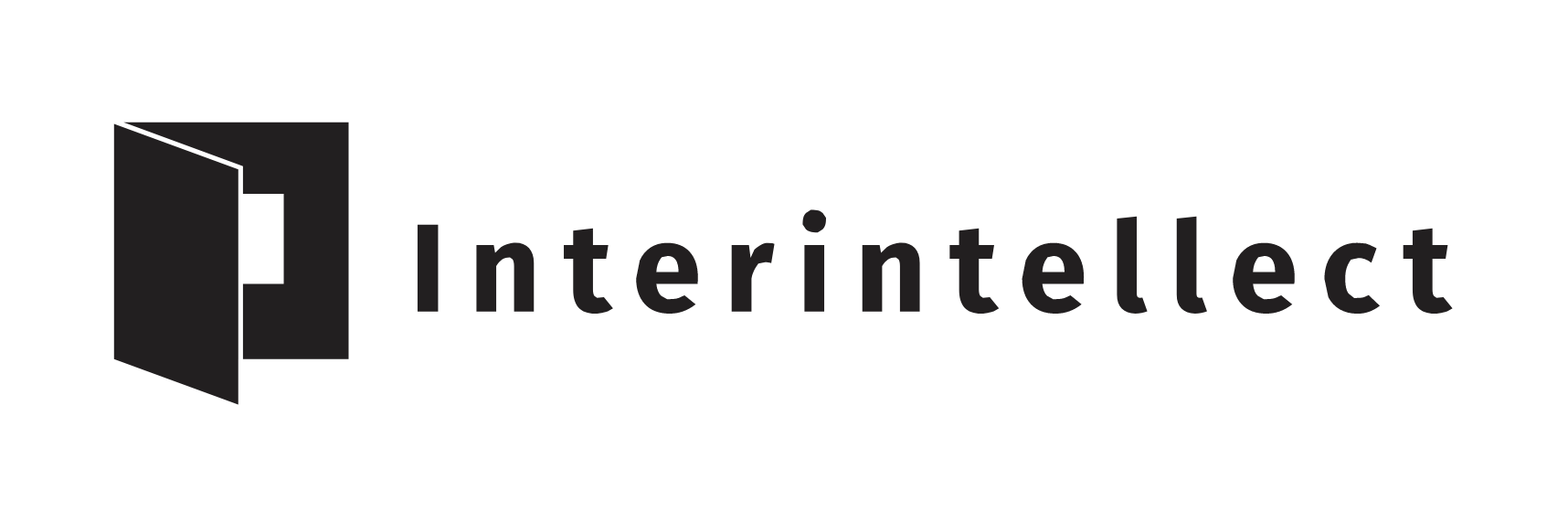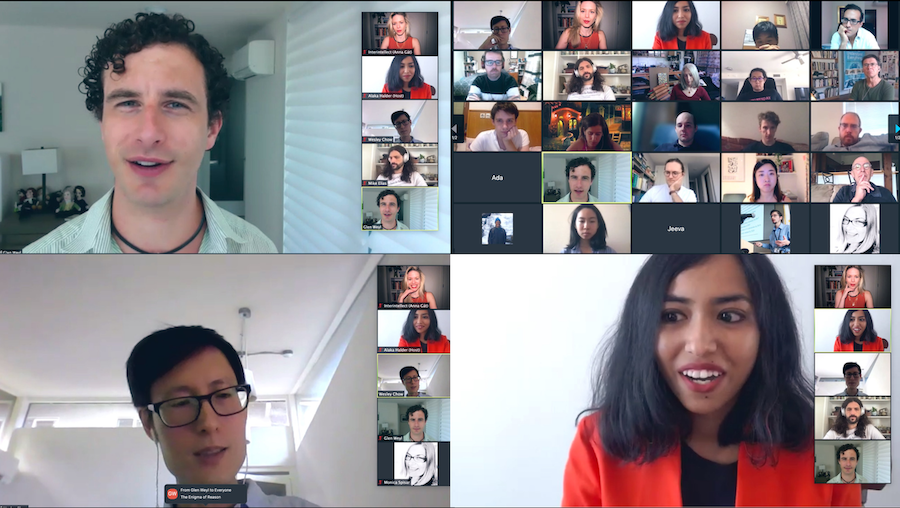When thinking about creating a new community, reflect on the unique intersection of existing communities you represent and who else might be in that same intersection.
Glen Weyl
Please log in to view the recorded event. Not a member? Join us!
Why do some communities and movements improve society in the long run while others flatline? What can a new, global, and multidisciplinary community like Interintellect learn from movements past and present as we work to improve the quality and impact of the world’s conversations? As a “community of individualists,” we also recognize the importance of diverse, individual contributions and are especially interested in learning how to thrive and cooperate in the resulting world.
To explore these and related topics, we invited Glen Weyl, a name well-known to those working to rethink and rebuild social, political, and technological institutions. One of the world’s leading economists and sociotechnologists, Weyl co-invented groundbreaking systems such as quadratic voting to improve collective decision-making and help societies solve inequality, stagnation, and political instability. Such concerns and possible solutions are explored in his book Radical Markets: Uprooting Capitalism and Democracy for a Just Society, published in 2018.
Later that year, Weyl created the RadicalxChange Foundation, a global movement which invites people from all backgrounds to build a more “diverse, equal, and free” world. Today, its chapters span the world, from La Paz to Lahore, São Paulo to Palo Alto.
At this members only event, we were especially interested in learning from RadicalxChange since our communities are similar in structure and collective spirit, although Interintellect focuses on open, diverse discourse instead of grassroots socio-political action. Both communities include artists, writers, activists, policymakers, and technologists among others. Some Interintellects are active RadicalxChange members.
Here are some highlights from our 14 July 2021 conversation, co-hosted by Wes Chow (MIT Center for Constructive Communication), alongside notes and community-curated links from our post-salon discussion. Enjoy!
The Road to RadicalxChange
We opened by asking Weyl about his journey with RadicalxChange, and how the movement reflects and informs his philosophy on building communities and movements through research, writing, and conversation.
When Radical Markets was published in 2018, Weyl was an academic economist with some experience in activism. After discussing the book with diverse communities (including students, policymakers, block-chain technologists, and artists), he realized that there were more effective ways to build, test, and communicate his ideas than the narrow, traditional channels through which research trickles into policy. He was also inspired by theories of change by thinkers like Hannah Arendt (he has previously discussed Arendt’s On Revolution on the 80,000 Hours podcast). Thus, RadicalxChange was founded under the values of “plurality, equality, community, and decentralization” to encourage social change through collective “bottom-up experimentation” instead of top-down policy prescription.
Similar to RadicalxChange, Weyl’s view of the world is open to new ideas and continues to evolve. Through pieces such as Why I Am Not A Technocrat (2019) and Why I Am Not a Market Radical (2020), he has rebutted and updated many ideas in Radical Markets. He is aware that RadicalxChange is often perceived as a technocratic movement, which could alienate large groups of people who are integral to its mission. He reflected that simply discussing the problems with technocracy through writing, as he has done previously, has been “quite ineffectual.” Now, he is focusing on designing and implementing alternative solutions by learning from artists, game designers, and science fiction writers.
Inspiring Collective Action: From Comics to Video Games
Movements succeed when people from different backgrounds are able to collaborate freely and are united by a clear vision, purpose, and set of values. Our audience felt that this requires a foundation of collective knowledge alongside effective strategies for creation, curation, and sharing. When we asked Weyl what we could learn from RadicalxChange, he reflected that art and multimedia are fundamental to reaching and sustaining a diverse collective. While the movement has experimented with various forms, from virtual reality to cyberpunk novels, Weyl acknowledged that it has been tricky to strike the right blend of clarity, vision, and functions. He finds inspiration in the Georgist movement and Marvel Comics, especially in how the latter has created a complex, multi-faceted, yet cohesive universe loved by millions of people regardless of country, age, or politics.
Since quadratic voting (QV) is one of Weyl’s most influential contributions, we wanted to learn how it might be taught in a way that clears the road for widespread adoption, perhaps through video games. Weyl maintained that while QV sounds “abstruse,” it is simple to understand and apply. Broadly, it provides a way for voters to express the degree, and not only the direction, of their preferences. So far, QV has been successfully tested to varying degrees in Colorado, Germany, and Taiwan. It also appears in the turn-based strategy video game Civilization VI.
However, Weyl noted that “no matter how simple anything is, people have to experience it. It has to be tactile in order for it to be meaningful.” Civilization VI’s weakness is that players do not know that they are using QV or how QV can be applied to improve real-world elections and public funding. The lack of explicit references to RadicalxChange also prevents players from connecting with the movement and learning more. Weyl envisions a game or teaching tool that is designed to show how collective decisions are hidden throughout everyday interactions. Users would be able to explore and apply QV by plugging in problems relevant to them.
After the salon, participants discussed potential shortcomings with QV. For example, it is susceptible to cheating (e.g., Sybil attacks) and collusion. Although Weyl and Eric Posner concluded in a theoretical paper that QV and the “one person, one vote” model are similarly vulnerable to collusion but QV is more socially optimal, our participants hoped to see if long-term empirical studies reach the same conclusion. Since we do not expect the public to read academic papers when assessing a new voting system, we wondered if it might be possible to oversimplify or distort QV (either unintentionally or maliciously) when conveying it to a broad audience. If so, could this reduce QV’s anticipated benefits?
Then, we reflected on our experiences with ranked-choice voting (RCV) during New York City’s 2021 mayoral primaries, which Weyl had noted as another important development in collective decision-making. Participants generally felt that RCV was effective (moderate candidates performed better, the geographic distribution of votes seemed appropriate, and results were widely accepted). However, several people noted that researching and ranking candidates is more cognitively taxing than “one person, one vote”. While this might not be inherently problematic, we noted that even highly-educated peers (e.g., those with graduate degrees or jobs in engineering, academia, and finance) had found RCV complex. We wondered if QV might be more complex to adopt than might appear (perhaps Taiwan is a exception), ending up with several questions:
- If RCV and QV are more cognitively taxing than “one person, one vote,” could they reduce voter turnout?
- Would video games be effective in teaching new voting systems to the elderly, illiterate, and those who have had little exposure to technology? What might be some alternatives?
- Many voters do not know what they want, or might vote for things that create present or future externalities. Are such issues more likely to affect certain areas of public life? How can we create safeguards?
Reimagining Institutions
The only way to create something new, in my view, is by remaking elements of the old.
– Glen Weyl
We also asked Weyl about pathways for reforming existing institutions, specifically in academia and business.
While critiques of academia often focus on limitations to free speech and shortcomings in how institutions are structured, funded, and run, Weyl reminded us of the oft-overlooked challenge of how social imagination greatly limits certain disciplines. He noted that the public commonly associates computer science with technology and innovation, empowering academics to apply their ideas to society and industry. However, economics is viewed as “social management… [which] is always just about fine tuning.” Hence the field is hamstrung by fixations with repetitive debates (e.g., communism versus capitalism) and small tweaks to stale ideas.
We also discussed ways to make socially conscious business models more competitive and prevalent. Weyl noted that “in general we need to create an architecture where any time you have power over someone, they have equal and opposite power over you” and stressed the importance of antitrust, interoperability, and creating a market space where profits are tied to credibility. He thinks that with effective antitrust, “it would be so much cheaper for [companies] to build their own base of legitimacy by creating real accountability than… to follow the easier path of just reacting to what happens.” He thinks that efforts like B Corporation are “maybe a little cosmetic” and noted that “deeper power transfers” are needed. For example, antitrust authorities might shift focus from breaking up companies and deals towards “structural remedies that are about empowering and building”. They could help establish judiciary boards, labor unions, and ultimately give voices to those who might be deprived (employees, customers, original equipment manufacturers, etc.) by power imbalances.
Post-salon, participants acknowledged the difficulty of translating these ideas into the intricate manoeuvers necessary for institutional reform. Partisan divides and the public’s shaken trust in traditional gatekeepers pose another challenge. In a world of increasing noise, misinformation, and complexity, how can we help people decide who to trust and how to work together? Could something as simple as playing trivia or attending salons be more effective at bridging socio-political divides than formal institutional reforms? And if we do opt for antitrust, how do we ensure that those authorities are immune to corruption?
Closing Thoughts
Before leaving, Weyl answered a fun round of “rapid fire” questions, sharing book recommendations, important experiments in collective decision-making (e.g. electronic voting in New Zealand), and thoughts on whether “land value taxes” should be applied to Non-Fungible Tokens (he would like to see something similar to Harberger taxes, with benefits returning to the artists and their communities). Check this Twitter thread for more answers.
As is often the case with Interintellect salons, we ended up inspired with more new questions to explore than sure answers, a sign of curiosity and engagement that we find encouraging! We are excited for the future of Weyl’s work (and how, last year, he co-authored Harvard’s Roadmap to Pandemic Resilience), as well as RadicalxChange’s efforts to improve democracy, the economy, the commons, and identity. If you are interested, please follow along on Twitter and listen to the RadicalxChange podcast.
—-
I would like to thank Anna Gát and Kelly Lin Kremer for feedback on this piece.

